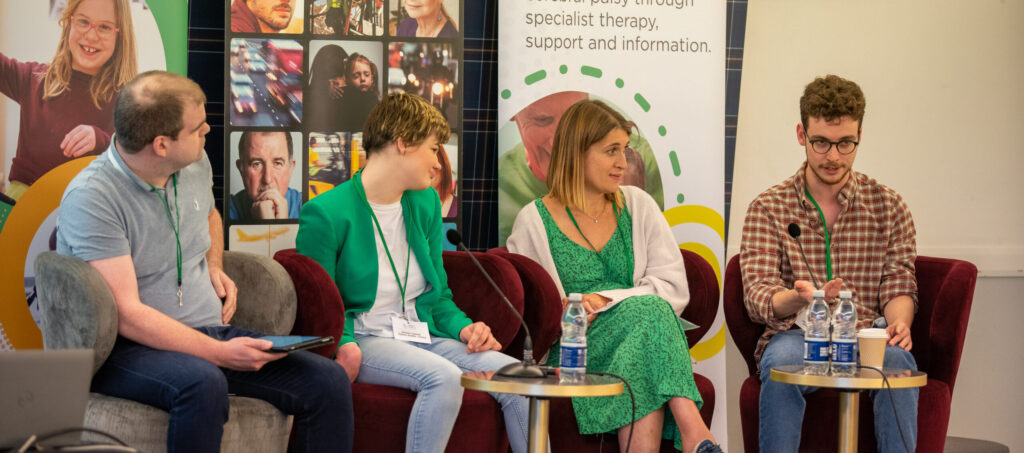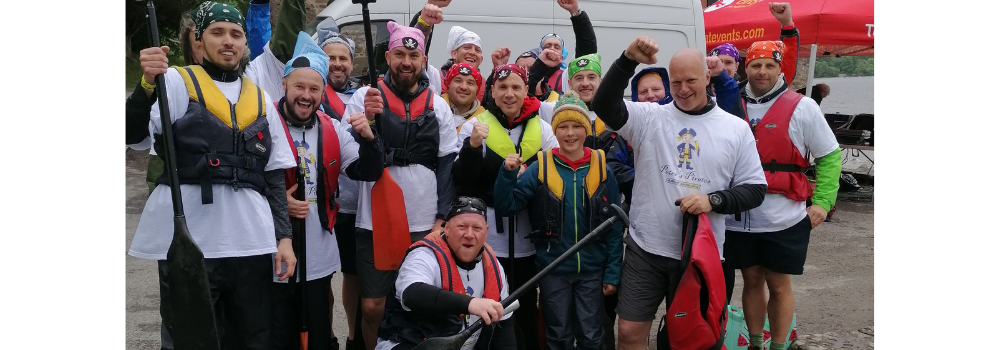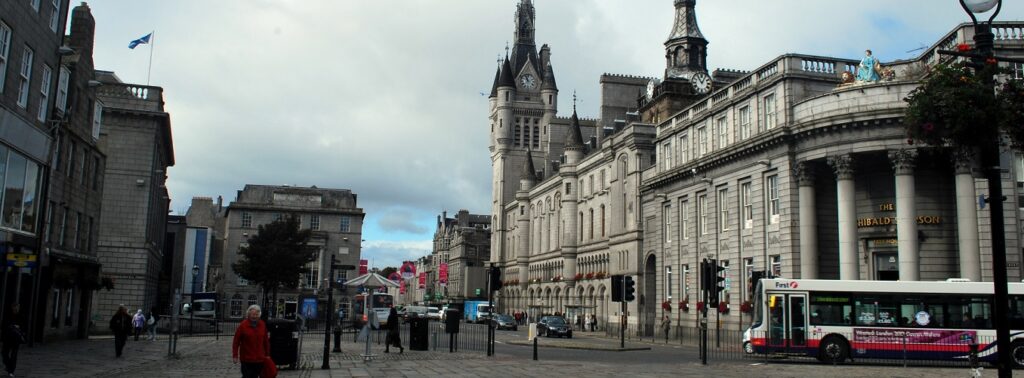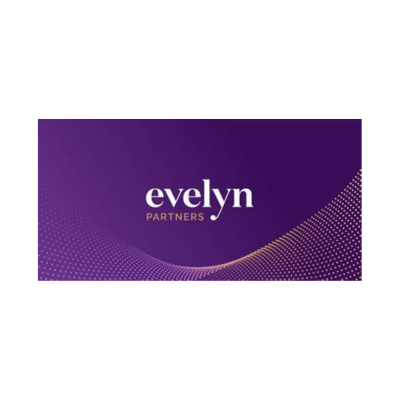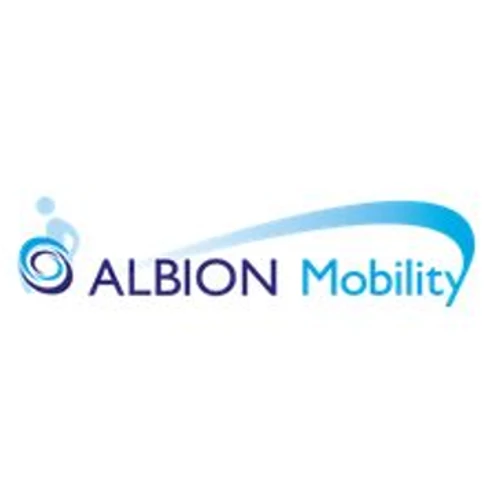The Cerebral Palsy Scotland conference and exhibition is Scotland’s only annual event focussing on cerebral palsy. Our next conference will be held on Wednesday 2 October 2024 at the Crowne Plaza hotel, Glasgow.
Corporate partnerships helping improve the lives of people with cerebral palsy: Allied Vehicles Group
Corporate support makes a huge difference in powering our work to improve the lives of people with cerebral palsy in Scotland.
One particular company who has been significant in helping to ensure people with cerebral palsy have access to specialist therapy, support and information this year is Allied Vehicles Group.
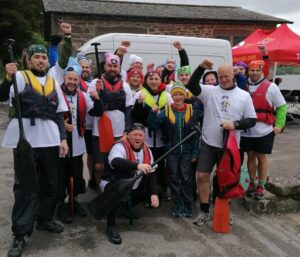 Allied Mobility is part of the Allied Vehicles Group and is the UK’s leading provider of wheelchair accessible vehicles. Allied Vehicles are a business which is local to us who feel passionately about supporting their local community.
Allied Mobility is part of the Allied Vehicles Group and is the UK’s leading provider of wheelchair accessible vehicles. Allied Vehicles are a business which is local to us who feel passionately about supporting their local community.
Since early 2022, Allied Vehicles have been active supporters of our work. Participating in our Dragon Boat race in June 2022, Allied vehicles took three boats of 18 people each. Their commitment came from all levels of the organisation with each boat captained by members of the founding family: Gerry, Peter and David Facenna. ‘Peter’s Pirates’ took the top spot, beating the eight other teams in the tournament. Together the Allied paddlers raised a fantastic £4,800 for Cerebral Palsy Scotland.
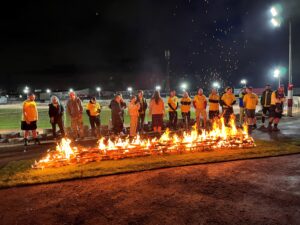 This sparked a fundraising flame in the hearts of the Allied team who subsequently sponsored our Burns Night Firewalk in January 2023. Allied kindly provided the Glasgow Tigers Speedway as a venue for the event with hot food and drinks for all participants. We had 11 Allied employees join our brave firewalkers, raising a fantastic £2,100. The Allied team certainly brought the heat to a cold January night and had excellent team spirit.
This sparked a fundraising flame in the hearts of the Allied team who subsequently sponsored our Burns Night Firewalk in January 2023. Allied kindly provided the Glasgow Tigers Speedway as a venue for the event with hot food and drinks for all participants. We had 11 Allied employees join our brave firewalkers, raising a fantastic £2,100. The Allied team certainly brought the heat to a cold January night and had excellent team spirit.
The Allied Vehicles Charitable Trust also provided a vital stop-gap to keep our Baby Buds sessions running in a two-month gap between funding. Baby Buds is a crucial chance for families to come and have regular support from our specialist therapists to help develop their child’s movement and enable play, exploration and communication. With the Trust’s help, we have been able to keep the group running, with more new families attending.
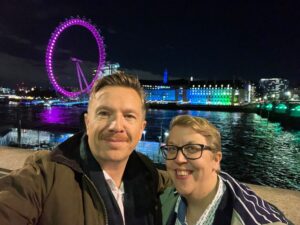
Outwith their fantastic fundraising, Allied Vehicles have been active members of our awareness raising work. David Facenna (Corporate Culture Director) and Gemma Žak-Duport (Group Head of Communications and Engagement) attended our reception at the House of Lords, Westminster. The event brought key people and organisations together to consider how we can build a better future for people with cerebral palsy. We were delighted to have our Allied friends attend in support of our mission to improve the lives of people with cerebral palsy in Scotland and further delighted to welcome David as a new member of our board of trustees earlier this year.
The Allied team have been hugely supportive of our work and we are thrilled that they are headline sponsors for our next Dragon Boat race day happening on 10 September.
Hear from David Facenna, Corporate Culture Director at Allied Vehicles about their experience supporting Cerebral Palsy Scotland:
Cerebral Palsy Scotland are a vital support for people with cerebral palsy and their families. We have been delighted to be able to support Cerebral Palsy Scotland. Our staff have also embraced the partnership through taking part in Dragon Boat racing and the Firewalk. Being able to take part in such engaging activities, whilst supporting such a worthwhile cause has been fantastic for our corporate culture and for building collaboration and teamwork.
We cannot thank the Allied Vehicles Group enough for their continued support in powering our work. Every day in Scotland, people with cerebral palsy and their families are not getting enough support. Because of Allied’s kindness, we have been able to continue providing specialist therapy, support and information for children and adults with cerebral palsy when it’s needed most.
If you would like to find out how your workplace can support Cerebral Palsy Scotland, please contact our team at GetInvolved@cpscot.org.uk.
Cerebral Palsy Aberdeen to close and transfer funds to Cerebral Palsy Scotland
Fundraising organisation Cerebral Palsy Aberdeen (CPA) has announced that it is to close on 19 June. Remaining funds from CPA are to be transferred to Cerebral Palsy Scotland and ring-fenced for use by people with cerebral palsy living in Aberdeen and Aberdeenshire.
Set up on 18 June 1973, Cerebral Palsy Aberdeen was dedicated to raising money for the purpose of distributing grants to benefit people with cerebral palsy and related conditions.
CPA’s Chairperson, June Waters, is due to retire from the committee on 13 June 2023, leaving only four committee members, none of whom are available to act as Chairman.
Initially an Aberdeen Committee of the Spastics Association, it became an independent charity at a later date, known as Aberdeen and District Cerebral Palsy Association, more recently changing name to Cerebral Palsy Aberdeen.
The charity gave regular funding grants over its nearly 50 year lifespan. For example, aA PhD student was funded for three years to carry out cerebral palsy research, Cerebral Palsy Scotland was funded to run outreach therapy sessions for adults with cerebral palsy in Aberdeen City and Aberdeenshire, public parks and gardens received funding for play equipment, and many individuals received grants for equipment such as standing frames, all-terrain buggies, specialised wheelchairs, trikes, electronic devices, iPads, and specialised items not supplied by the NHS or Local Authority.
Commenting on CPA’s closure, Cerebral Palsy Scotland CEO, Stephanie Fraser, said:
“We were all very saddened to hear of the decision to close Cerebral Palsy Aberdeen. The charity has a long history of helping people with cerebral palsy and their families in the Aberdeen City and Shire area. We would like to sincerely thank the CPA committee and supporters for putting their trust in us to manage the charity’s remaining funds. We’re committed to using these to support children and adults with cerebral palsy from Aberdeen and Aberdeenshire to access our specialist therapy and other services.”
June Waters, Cerebral Palsy Aberdeen Chairperson, said:
“On 19 June 2023 Cerebral Palsy Aberdeen (CPA) closed down, exactly 50 years to the day it was set up in 1973. All remaining funds were transferred to Cerebral Palsy Scotland, to be used for the benefit of people with cerebral palsy residing in Aberdeen City and Aberdeenshire.
I and the CPA committee members, Lesley, Rhona, Susan and Amy, would like to thank Cerebral Palsy Scotland for their support over the years, and send best wishes to everyone at Cerebral Palsy Scotland, wishing them well in the future.”
If you’re an adult with cerebral palsy or care for a child with cerebral palsy and live in Aberdeen City or Aberdeenshire, please contact us to discuss accessing therapy sessions.
Evelyn Partners
Evelyn Partners specialise in providing financial planning and investment services for those receiving compensation as a result of personal injury such as a spinal injury or Cerebral Palsy. Pre-settlement services include advice on regular periodical payments versus lump sum settlement.
Albion Mobility
We’re a family-run mobility company with over 30 years’ experience, specialising in complex seating and custom-built solutions. Our expert team is dedicated to improving your comfort and independence. From active to powered wheelchairs, we offer personalised support and guidance to help you find the perfect mobility solution for your needs.
